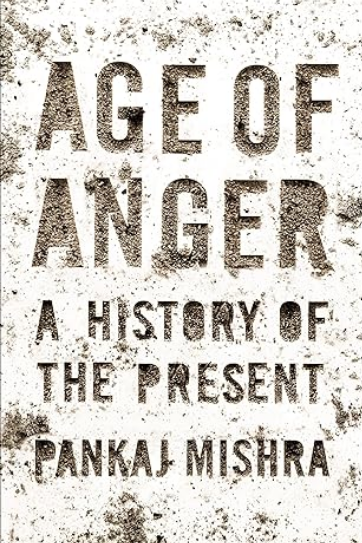Author: Pankaj Mishra
Age of Anger: A History of the Present by Pankaj Mishra is a thought-provoking non-fiction book that delves into the roots of contemporary global unrest and the rise of reactionary movements. Here’s a detailed summary and some reviews:
Summary
Age of Anger explores the historical and philosophical underpinnings of the widespread anger and resentment seen in today’s world. Mishra argues that the current political and social turmoil, from Trumpism and Brexit to Islamic extremism, is a reaction to the failures of modernity, capitalism, and liberal democracy¹.
Key Themes:
- Historical Context: Mishra traces the origins of modern anger back to the Enlightenment and the Industrial Revolution. He discusses how the promises of freedom, equality, and prosperity have often led to feelings of alienation and dislocation¹.
- Ressentiment: A central concept in the book, ressentiment refers to a deep-seated resentment and envy towards others, fueled by a sense of powerlessness and humiliation¹.
- Critique of Modernity: Mishra critiques the dominant narratives of progress and rationalism, arguing that they have often led to violence and disorder rather than peace and stability.
- Global Perspective: The book examines various global movements and ideologies, from European fascism to Islamic jihadism, showing how they are interconnected through shared feelings of anger and disenchantment¹.
Reviews
SuperSummary describes the book as an absorbing and richly learned work that challenges dominant political theories like Francis Fukuyama’s “The End of History” and Samuel Huntington’s “Clash of Civilizations”¹. Mishra’s argument that modernization has often led to chaos and violence rather than progress is seen as a subversive and timely critique.
Four Minute Books highlights the book’s relevance in understanding the current state of global affairs. It praises Mishra’s ability to trace the roots of modern anger back to the Enlightenment and the rise of individualism, which has often led to increased feelings of disillusionment and resentment².
New Humanist commends Mishra for his deep and nuanced analysis, tying together historical events and philosophical ideas to explain contemporary issues. The review notes that the book is both erudite and accessible, making it a valuable read for anyone interested in understanding the complexities of modern anger.
Overall, “Age of Anger” is celebrated for its insightful analysis and comprehensive exploration of the historical roots of contemporary discontent. It’s a compelling read for those looking to understand the deeper causes of today’s global unrest.
Source:
(1) Age of Anger Summary | SuperSummary. https://www.supersummary.com/age-of-anger/summary/.
(2) Age of Anger – Wikipedia. https://en.wikipedia.org/wiki/Age_of_Anger.
(3) Age Of Anger Summary and Review- Four Minute Books. https://fourminutebooks.com/age-of-anger-summary/.
(4) Book review: Age of Anger | New Humanist. https://newhumanist.org.uk/articles/5194/book-review-age-of-anger.
(5) Age of Anger Summary & Study Guide – BookRags.com. https://www.bookrags.com/studyguide-age-of-anger/.
(6) Age of Anger Book Summary, by Pankaj Mishra – Allen Cheng. https://www.allencheng.com/age-of-anger-book-summary-pankaj-mishra/.
(7) Book Review: Age of Anger: A History of the Present by Pankaj Mishra. https://blogs.lse.ac.uk/usappblog/2017/02/26/book-review-age-of-anger-a-history-of-the-present-by-pankaj-mishra/.
(8) Age of Anger: A History of the Present – Goodreads. https://www.goodreads.com/book/show/30989285-age-of-anger.
(9) Age of Anger : A History of the Present – Google Books. https://books.google.com/books/about/Age_of_Anger.html?id=WVCoDAAAQBAJ.
(10) goodreads.com. https://www.goodreads.com/book/show/33914173-age-of-anger.


Leave a Reply